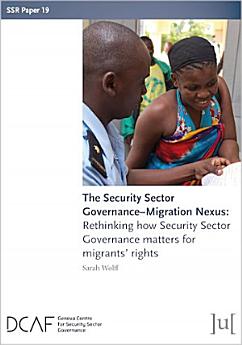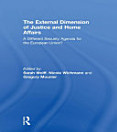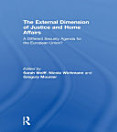The Security Sector Governance–Migration Nexus: Rethinking how Security Sector Governance matters for migrants’ rights
About this ebook
More importantly, the paper argues that poor SSG/R at home produces refugees and incentivizes migrants to leave their countries after being victims of violence by law enforcement and security services. During migrants’ complex and fragmented journeys, good security sector governance is fundamental to address key challenges faced by these vulnerable groups. I also argue that a better understanding of migrants’ and refugees’ security needs is beneficial and central to the good governance of the security sector.
After reviewing the key terms of migration and its drivers in section 2, section 3 reviews how SSG is part of the implementation of the GCM. SSR actors play a role in shaping migratory routes and refugees’ incentives to leave, in explaining migrants’ and refugees’ resilience, in protecting migrants and refugees, and in providing security. Although it cautions against artificial classifications and the term of ‘transit migration’, section 4 reviews what the core challenges are in the countries of origin, transit and destination. Section 5 provides a detailed overview of the linkages between migration and each security actor: the military, police forces, intelligence services, border guards, interior ministries, private actors, criminal justice, parliaments, independent oversight bodies and civil society. Section 6 formulates some recommendations.
About the author
Sarah Wolff is the Director of the Centre for European Research and Reader (Associate Professor) at Queen Mary University of London. Since 2019, she is Principal Investigator for the Jean Monnet Centre of Excellence NEXTEUK project on the future of EU-UK Relations. She is Visiting Professor at the College of Europe and a Senior Research Associate at the Netherlands Institute of International Relations (Clingendael). In 2021 she was elected Commitee member of the University Association for Contemporary European Studies (UACES). A leading scholar of European integration, she has recently co-edited a special issue for the Journal of European Integration on EU responses to the Covid-19 Pandemic. A work on migration has included research on Frontex, the role of cities in managing migration in Morocco, the EU-Readmission Agreement negotiations with Morocco and Turkey and extensive consultancy work on EU related migration issues. Dr Wolff is an expert of European migration and border management policies, EU foreign policy and democratization efforts, as well as EU-Arab Mediterranean relations and EU-Islam relations. She is Editor of the journal Mediterranean Politics. Her manuscript with Michigan University Press on ‘Secular Power Europe and Islam: Identity and foreign policy’(summer 2021) is the result of data collected through a Fulbright-Schuman and a Leverhulme research grant. Her monograph ‘The Mediterranean Dimension of the European Union’s Internal Security’ (Palgrave, 2012) was one of the first comprehensive studies exploring the externalisation of EU Justice and Home Affairs policy to North Africa and the Middle East. She received the LISBOA Research Award 2012 for her book ‘Freedom, Security and Justice after Lisbon and Stockholm’ (Asser, 2012; co-edited). Before joining academia, Dr Wolff worked at the European Commission and the European Parliament.









